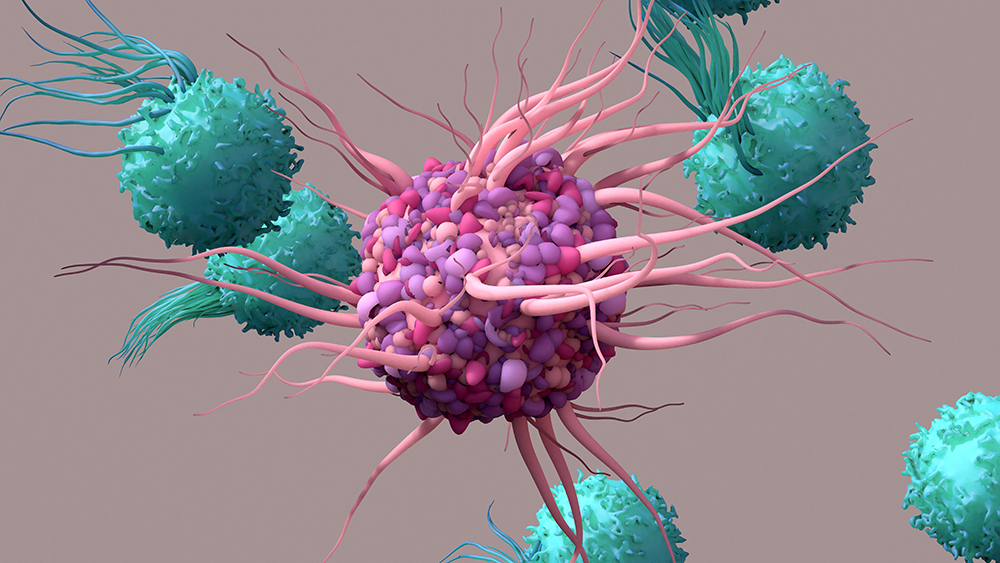
Motivating the immune system to fight cancers like glioblastoma requires a multi-step process. One step is enabling the body’s T cells to swarm to the area of the disease. Another is the T cells recognizing the cancer cells as dangerous and unwanted.
How do the T cells learn which cells are healthy and which ones are flawed?
This is where a specific type of immune system cell, called a dendritic cell, shines in protecting the human body against cancer. One of the new ways to treat glioblastoma involves adding more of these cells to the body.
Many types of cancer cell and gene therapy are on the rise. One, called CAR T-cell therapy, is approved for various blood cancers and may advance through clinical testing for solid tumor diseases, like the rare but deadly brain cancer glioblastoma.
Dendritic cell therapy – also called dendritic cell vaccine – is another type of cell and gene therapy in testing for various cancers. According to a study published by the American Association for Cancer Research, doctors at multiple United States cancer centers learned this option is safe for patients and could improve survival for glioblastoma.
How dendritic cell therapy works
Understanding the science of dendritic cell therapy first requires learning the purpose of dendritic cells in the immune system. Dendritic cells are “antigen-presenting cells.” They help the immune system’s T cells and other cancer-fighting agents learn how to identify cancer cells.
This step of the immune response usually involves dendritic cells downloading the biology of cancer cells and delivering the key components to the other cells. The dendritic agents usually present a few specific biomarkers, or fingerprints, distinguishing cancer cells from others.
Dendritic cell therapy is an attempt to strengthen and quicken this communication between dendritic cells and T cells. Doctors add dendritic cells already armed with the download of the cancer cells’ characteristics.
Alliance for Cancer Gene Therapy has funded many research programs centered around dendritic cells and dendritic vaccine therapies. ACGT Fellow Brent Hanks, MD, PhD, of Duke University School of Medicine, received grant funding in 2019 to create a vaccine to protect dendritic cells from being suppressed.
Does dendritic cell therapy work for glioblastoma?
Glioblastoma, a type of brain cancer, is challenging for the immune system to fight naturally. A biological phenomenon called the blood-brain barrier limits the movement of immune cells to the brain. So the immune system needs external help.
In a Phase 1 study of dendritic cell therapy, researchers created vaccines from 36 patients’ existing dendritic cells. Of the patient pool, 25 had recurrent glioblastoma and 11 had been newly diagnosed with the disease.
In this study, the dendritic cell vaccines helped add precious months to patients’ lives:
- New cases – Median overall survival of 20 months, and median progression-free survival of 8.75 months
- Recurring cases – Median overall survival of 12 months, and median progression-free survival of three months
The average survival for patients with glioblastoma is 12-18 months, which is comprised mostly of new cases. Recurring cases often don’t reach one year of survival.
Help move dendritic cell vaccines forward
Chemotherapy and radiation therapy, the two long-accepted options to treat cancer, can ravage the body by killing healthy cells and damaging tissue. These methods also are inconsistent in creating a survival benefit.
Dendritic cell therapy is one of many cell and gene therapies in clinical testing for this devastating disease.
However, many new concepts never make it to a lab or clinical trial due to lack of funding. This reality means a researcher may have discovered a potential breakthrough for glioblastoma but cannot access the funds to move it forward.
Thanks to the work of ACGT, people like you can help bring life-changing new therapies to patients. A donation – no matter how big or small – is the lifeblood of furthering cancer cell and gene research. Please consider making a gift to Alliance for Cancer Gene Therapy so we can identify the next breakthrough in treating glioblastoma.
Page sources
- A Phase I Study of Autologous Dendritic Cell Vaccine Pulsed with Allogeneic Stem-like Cell Line Lysate in Patients with Newly Diagnosed or Recurrent Glioblastoma. American Association for Cancer Research. Retrieved from: https://clincancerres.aacrjournals.org/content/early/2021/12/02/1078-0432.CCR-21-2867.long. Accessed: 01/03/2021.



